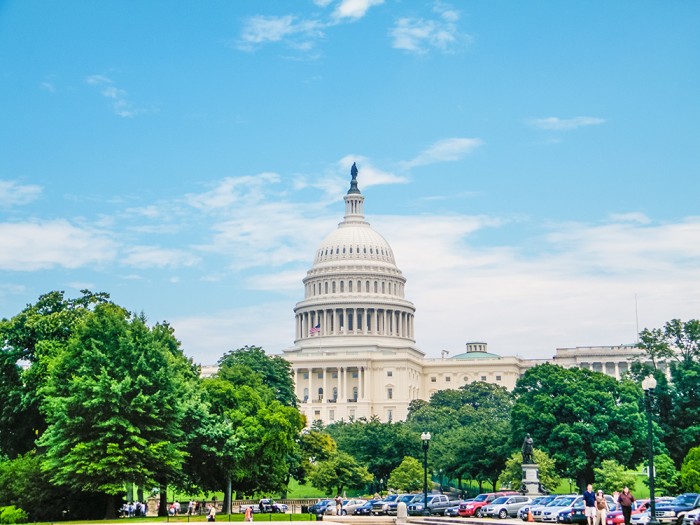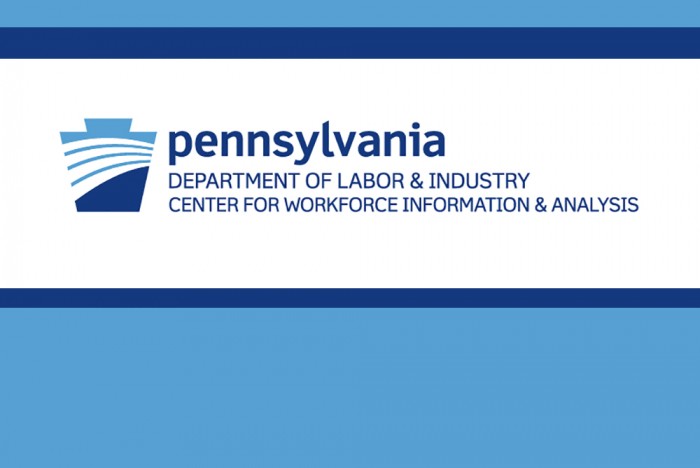Mihalik Introduces Grants Legislation for PA Nonprofits
Representative Natalie Mihalek (R-Allegheny/Washington) announced that she has introduced legislation to establish a grant program to support the Commonwealth’s human services system. Referred to as the Nonprofit Economic Emergency Delivery System (NEEDS) Grants Program, the initiative will focus on the more than 8,500 nonprofit organizations that provide critical services for Pennsylvania’s most vulnerable population, while employing a significant percentage of the Commonwealth’s workforce. See press release: Mihalek Introduces Legislation to Establish Grant Program to Support Pennsylvania Nonprofit Organizations.
Mihalek noted that nearly 80% of nonprofit revenue comes from government grants or contracts and fees for service. “Many nonprofit organizations are struggling financially due to COVID-19, with fundraising events being canceled and donor, foundation and government support drying up,” continued Mihalek. “Yet, the need for these organizations to support communities across our Commonwealth is at all-time high. Nonprofit organizations must be able to continue to provide services to the most vulnerable Pennsylvanians, especially those who have suffered due to COVID-19. If these organizations fail, there will not be a way to provide critical services such as food, shelter, medical treatment, child care, workforce training and more.”
Mihalek’s legislation, introduced as House Bill 2740, would establish a statewide competitive grant program for eligible community-based human services nonprofit organizations (i.e., child care centers, domestic violence centers, early intervention service providers, food banks, alternative education providers, organizations serving individuals with intellectual and/or developmental disabilities, etc.) that were impacted by the COVID-19 crisis either by closure, increased service delivery, or loss of revenue. Under this proposal, $200 million in the COVID-19 Response Restricted Account would be transferred to the Commonwealth Financing Authority to provide grants to these nonprofit organizations. The maximum grant would be $500,000 per eligible nonprofit organization.
If you have questions or feedback, please contact your RCPA Policy Director.
Provider Relief Fund Timeline
General and Targeted Distribution Post-Payment Notice of Reporting Requirements
The purpose of this notice is to inform Provider Relief Fund (PRF) recipients that received one or more payments exceeding $10,000 in the aggregate from the PRF of the timing of future reporting requirements. Detailed instructions regarding these reports will be released by August 17, 2020.
The reporting system will become available to recipients for reporting on October 1, 2020.
- All recipients must report within 45 days of the end of calendar year 2020 on their expenditures through the period ending December 31, 2020.
- Recipients who have expended funds in full prior to December 31, 2020 may submit a single final report at any time during the window that begins October 1, 2020, but no later than February 15, 2021.
- Recipients with funds unexpended after December 31, 2020, must submit a second and final report no later than July 31, 2021.
- Detailed PRF reporting instructions and a data collection template with the necessary data elements will be available through the HRSA website by August 17, 2020.
If you have any questions, please contact your RCPA Policy Director.
PA House Committee Hearings Testimony On Pandemic Impact On Mental Health
By Robert Swift
Staff Writer
HARRISBURG (July 28) – The COVID-19 pandemic will present mental health challenges for years to come even after the immediate health dangers have passed, a deputy secretary for the state Department of Human Services told a House committee Tuesday.
“Our office is among thousands of behavioral health entities across the country that believe behavioral health needs created by this pandemic will be much longer lasting than the health crisis,” said Kristen Houser overseeing the Office of Mental Health and Substance Abuse. “We fully anticipate to feel and treat the impact of COVID-19 for the years to come.”
Houser’s assessment came during a hearing by the Human Services Committee on the pandemic’s impact on mental health. The committee also heard testimony from academics, county mental and behavioral health officials and service providers.
She said the pandemic has led to isolation and created feelings of helplessness, hopelessness, anxiety, fear of the unknown and unresolved grief that can have a negative impact on behavioral health in the form of depression, substance abuse and even suicide.
Pennsylvania could see a jump in Medicaid enrollment ranging from 1.2 million to 1.34 million depending on different scenarios involving unemployment and the recovery, according to a preliminary report in April from the Medicaid Research Center at the University of Pittsburgh that Houser cited.
“These new enrollees may pose a significant influx of people seeking Medicaid-supported behavioral healthcare in the coming year,” said Houser.
The pandemic has led providers to use “telehealth” with the help of relaxed rules to address mental health issues instead of personal visits to an office.
“We are both faced and facing exacerbations of the problems that plague our mental health system before COVID, including lack of care due to closure of clinics, closure of crisis services, lack of access to hospital beds,” said Dr. Erika Saunders, chair of Penn State Health’s Department of Psychiatry and Behavioral Health. “The telehealth waiver has been enormously helpful, however we still struggle because many patients do not have access to the technology or internet/cellular service to use technology for telehealth.”
Telehealth has been convenient for elderly patients, but hasn’t worked well for sessions with young children and children with autism under age six, said Paul Denault, president of Northern Tier Counseling Inc. The lack of broadband and cell phone service in rural areas has been a major problem, he added.
“I think we are going to be bombarded,” said Denault referring to demand for services after the crisis is over.
Several of those testifying spoke of the challenges facing workers in the mental health field worried about providing care while also worried about the risk of getting infected themselves or infecting their families.
“Our essential workers wake up every day knowing that not going to work could pose a serious risk to their health and yet staying home could mean forgoing a paycheck,” said Cherie Brummans, CEO of The Alliance of Community Service Providers. “We say that we support and admire essential workers, and yet providers are not reimbursed enough to substantially increase the amount of money that we pay these employees.”
Several testifiers urged that mental health workers receive priority in getting COVID-19 tests and prompt test results and personal protective equipment.
Houser said that Act 24 of 2020 — a state law distributing federal CARES Act money to counties — didn’t specifically allocate funding for behavioral health care providers.
Rep. Tarah Toohil, R-Luzerne, said Act 24 distributes millions of dollars to counties. She urged care providers to contact county officials to secure a share of that money.
# # #
If you have any questions, please contact RCPA Mental Health Division Director Sarah Eyster or Children’s Division Director Jim Sharp.
Preliminary 2019 Overdose Death Data Shows Approximately One Percent Decrease Across State
Public Comment Notice: Pennsylvania’s DRAFT WIOA Performance Reporting Policy
Pennsylvania’s DRAFT Workforce Innovation and Opportunity Act Performance Reporting Policy is posted on the Pennsylvania Department of Labor & Industry website for public review and comment. Public comment is open through Friday, August 14, 2020 at 12:00 pm. Please submit comments via email.
This policy identifies the Workforce Innovation and Opportunity Act, or WIOA, primary indicators of performance, and how they apply to the programs delivered under WIOA titles I and III. This policy establishes procedures for local workforce development boards to negotiate and reach agreement with the commonwealth on LWDA levels of performance for the primary indicators of performance for Title I and Title III. This is a new Pennsylvania workforce system policy.
Should you have any questions or concerns regarding this correspondence, please contact the Bureau of Workforce Development Administration Policy Coordination Unit. Comments received during this period will be addressed before the policy is finalized, published, and placed into effect.
PA Workforce Development Association Virtual Conference Oct 21–23
‘Trauma-Informed PA’ Plan with Recommendations and Steps for the Commonwealth and Providers
PA Department of Health and Department of Human Services Overview of RRHCP
RCPA Member APA Survey
As part of RPCA’s ongoing effort with members and stakeholders regarding the Alternative Pay Arrangements/Agreements (APA), we are asking members to complete this APA Survey.
We understand that these may look different across our membership, so we have requested input and feedback from the BH-MCOs in the development of the survey questions.
We respectfully request that one survey be completed for each of those program areas if the APAs differ across your service continuum. The data we collect will be instrumental in our collective efforts with DHS, and managed care organizations, regarding strategic fiscal considerations in the coming months.
We request the surveys be completed by August 7, 2020. Thank you, and if you have questions, please contact RCPA Children’s Division Director Jim Sharp or your RCPA Policy Director.


















